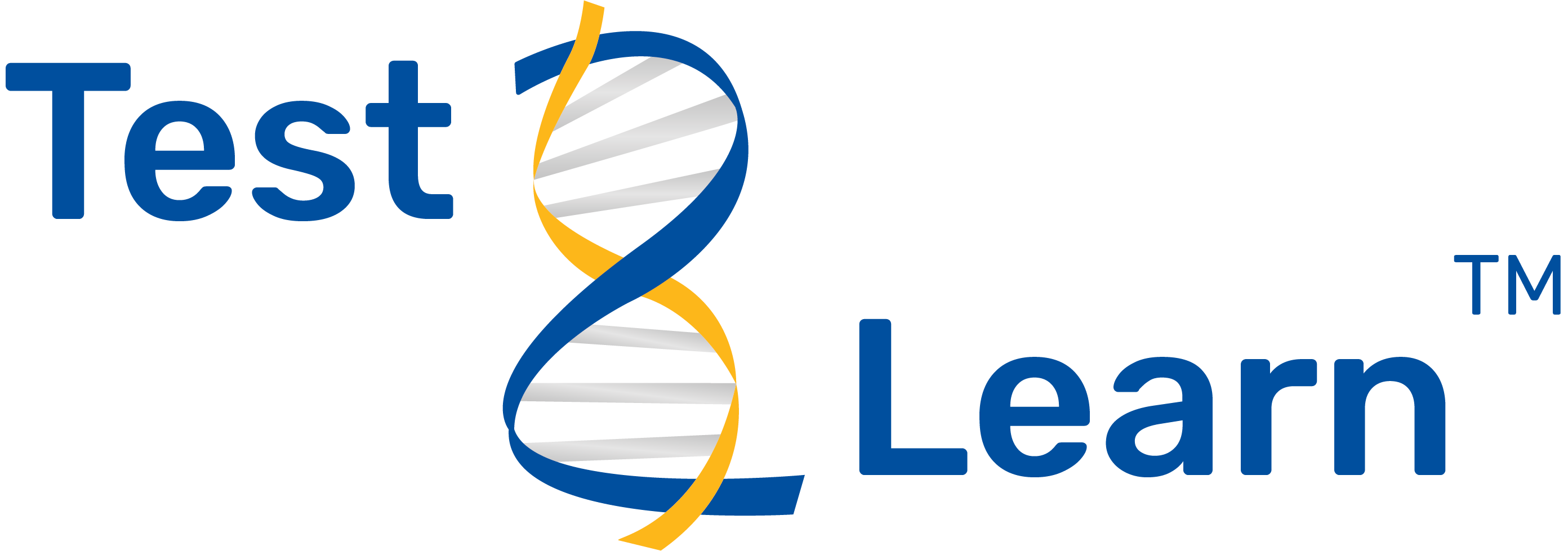News
Test2Learn™ NACDS Community-Based Pharmacogenomics Certificate Program & Train-the-Trainer Workshop at AACP!
Join us on Wednesday, July 17, 2019 for an NACDS Test2Learn™ Community-Based Pharmacogenomics Certificate Program (ACPE-accredited) followed by a Train-the-Trainer Workshop. Please note: The Train-the-Trainer workshop is open only to those who have successfully completed the certificate program. Those completing the certificate program on July 17 are welcomed to attend.
ACPE-accredited Certificate Program Features
Train-the-Trainer Workshop Features
Date & Time: Wednesday, July 17, 2019, 7:30a-7:00p |
 Join us at Pharmacy Education 2019 |
Schedule of Live Educational Activities
| 7:30 am | Breakfast and Program Registration |
| 8:00 am | Certificate Training Program Begins – Population variability and PGx clinical decision making – Leveraging PGx information resources – Predicting PGx phenotypes using real genetic data – Application to patient cases |
| 12:00 pm | Lunch |
| 1:00 pm | Certificate Training Program Continues – Communicating with patients and providers – PGx implementation barriers – Implementation models and transitions of care |
| 4:30 pm | Certificate Training Program ends |
| 5:00 pm | Train-the-Trainer Program Begins with Dinner |
| 7:00 pm | Train-the-Trainer Program Ends |
Faculty Members
| Philip E. Empey, PharmD, PhD Associate Director, Institute of Precision Medicine Pharmacy and Therapeutics, University of Pittsburgh School of Pharmacy Faculty profile |
James M. Stevenson, PharmD, MS, BCPP Assistant Professor, Pharmacy & Therapeutics University of Pittsburgh School of Pharmacy Faculty profile |
Certificate Program Activity Description
The Test2LearnTM Community-based Pharmacogenomics Certificate Program teaches the principles of pharmacogenomics as well as its practical implications in disease states such as cardiology, oncology, neurology and infectious diseases, among others. It trains pharmacists to decipher genetic tests, translate that information, and make appropriate recommendations for the patient (including collection of DNA samples) interpretation of patient results, and counseling and collaboration with prescribers to help optimize patient medication regimens.
The 20-hour ACPE-accredited certificate program enables students to learn by using real genetic data in highly-interactive exercises with an optional activity for learners to undergo personal genomic testing. The Certificate Program is comprised of:
12 hours of home study
8 hours of live training
The target audience for the certificate program is community pharmacists including students, academia, and pharmacy association staff. While the program is primarily designed for community pharmacists, non-pharmacists interested in pharmacogenomics are also welcomed to complete the program.
Successful completion of the live seminar component involves passing the final exam with a grade of 80 percent or higher and demonstrating proficiency in diagnostic testing techniques. Successful completion of this component will result in 8.0 contact hours of continuing pharmacy education credit. Successful completion of the self-study component involves passing the self-study assessment questions with a grade of 80 percent or higher and will result in 12.0 contact hours of continuing pharmacy education. Attendance and participation are required before obtaining CPE credit. Partial credit will not be awarded.
Learning Objectives
The pharmacist who completes the home-study and live components of this Pharmacogenomics Certificate Program should be able to:
- Demonstrate understanding of basic genetic/genomic concepts and nomenclature
- Describe advances in scientific knowledge and technology, which have led to innovations in personalized medicine
- Identify the role of behavioral, social and environmental factors (lifestyle, socioeconomic factors, pollutants, among others) to modify or influence genetics in the manifestation of disease.
- Compare and contrast different PGx study designs.
- Identify drug- and disease-associated genetic variations that facilitate development of prevention and treatment strategies and appreciate there are differences in testing methodologies and are aware of the need to explore these differences in drug literature evaluation
- Assess predisposition to disease and selection of drug treatment by using family history
- Describe the role of genetic factors in maintaining health and preventing disease
- Assess the difference between clinical diagnosis of disease and identification of genetic predisposition to disease (genetic variation is not strictly correlated with disease manifestation)
- Recognize that pharmacogenomic testing may also reveal certain genetic disease predispositions (e.g., the Apo E4 polymorphism)
- Demonstrate an understanding of how genetic variation in a large number of proteins influences pharmacokinetics and pharmacodynamics related to pharmacologic effect and drug response
- Use online resources to assign haplotypes and predicted drug response phenotypes from genetic data.
- Describe the influence (or lack thereof) of ethnicity in genetic polymorphisms and associations of polymorphisms with drug response
- Recognize the availability of evidence-based guidelines that synthesize information relevant to genomic/pharmacogenomic tests and selection of drug therapy (e.g. Clinical pharmacogenomics implementation consortium)
- Evaluate the availability of genetic testing under FDA, CLIA, and DTC regulations.
- Evaluate PGx test reports through group-based activities and role-playing to demonstrate the PGx knowledge/skill-based competencies
- Create a step-wise decision-making process for the integration of PGx with clinical variables known to impact PK/PD to make appropriate PGx-based recommendations for patients and populations.
- List drugs/clinical situations where PGx testing is likely to be most useful clinically
- Identify the potential physical and/or psychosocial benefits, limitations and risk of genomic/pharmacogenomic information for individuals, family members and communities, especially with genomic/pharmacogenomic tests that may relate to predisposition to disease
- Describe the increased liability that accompanies access to detailed genomic patient information and maintain confidentiality and security
- Define the cost, cost–effectiveness and reimbursement by insurers relevant to genomic or pharmacogenomic tests and test interpretation for patients and populations
- Identify the need to refer a patient to a genetic specialist or genetic counselor
- Describe proper documentation of test results in electronic patient record
- Adopt a culturally sensitive and ethical approach to patient counseling regarding PGx test results
- Demonstrate patient and provider communication about PGx testing and test results and counseling through group-based activities and role-playing
- Evaluate about different business models to integrate PGx in various practice sites
- Discuss different strategies to engage with local practitioners to optimize the delivery of PGx services prior to implementation
- Demonstrate proficiency in different types of sample collection practices for PGx testing, review of safety procedures for handling biospecimens and proper mailing
Continuing Pharmacy Education (CPE)
 |
The National Association of Chain Drug Stores is accredited by the Accreditation Council for Pharmacy Education as a provider of continuing pharmacy education. The home study portion of the program is approved for 12 contact hours and the live training is approved for 8 contact hours of continuing pharmacy education credit. Credit is only awarded for completion of the entire 20 contact hour program. Credit must be claimed within 60 days of completing the program. |
Test2LearnTM Community-based Pharmacogenomics Certificate Program ACPE Universal Activity #0206-0000-19-012-B04-P.
Activity Type: Practice-based
Target Audience: Pharmacists in all practice settings
Release Date: June 13, 2019
Expiration Date: June 13, 2022
